Jesuit Social Ministry Leaders from Across Americas Gather in Dominican Republic
BY ISN STAFF | April 21, 2016
SANTO DOMINGO, DOMINICAN REPUBLIC – Over ninety representatives of Jesuit social ministries gathered in Santo Domingo, Dominican Republic, from April 4 – 8, 2016, for the Intercontinental Jesuit Gathering for Social and International Ministry. Delegates attending the meeting represented twelve different Jesuit provinces from as far north as Canada and as far south as Central America, including the Caribbean, Mexico, and the United States. The meeting was attended by seven Jesuit provincials, Fr. Patxi Álvarez, S.J., Social Justice and Ecology Secretariat, Jesuit Curia, and Fr. Timothy Kesicki, S.J., president of the Jesuit Conference of Canada and the United States, and Christopher Kerr, executive director of the Ignatian Solidarity Network.
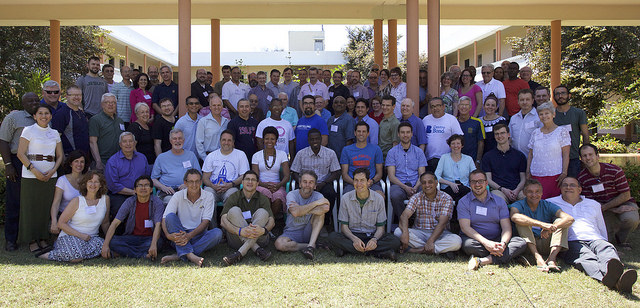
Encuentro Santo Domingo 2016 delegates representing over a dozen countries from the region.
The gathering began with a presentation by Fr. Alvarez offering an overview of the history and current implications of Decree 4, a key section of the document produced during the Jesuit’s 32nd General Congregation in 1974, entitled “The Service of Faith and the Promotion of Justice.” “Saint Ignatius from his conversion was living and serving the poor. I do not think we remember that as much as we should,” said Alvarez, as he began his presentation, emphasizing that social ministry has been at the core of Jesuit mission since the Society of Jesus was founded in 1540.
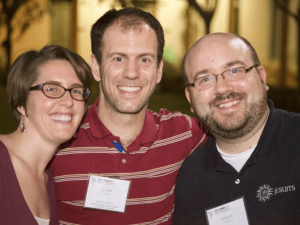
Elizabeth Schwab Embry (Saint Louis University), Christopher Kerr (Ignatian Solidarity Network), and Sam Sawyer, S.J. (America Magazine)
Over the course of the next three days, the delegates learned about the hemispheric realities of four key justice issue areas where the Jesuits and lay partners are engaged throughout the region: the economic system and exclusion, the environment and natural resource extraction, violence and organized crime, and migration.
Rosa Cañete, coordinator of the “Equal” campaign against inequality in Latin America and the Caribbean at Oxfam International, offered an overview of economic exclusion in the region. Pedro Landa of Equipo de Reflexión, Investigación y Comunicación, a Jesuit-sponsored social research center in Honduras, explained the harsh impacts of the extractive mineral industry on Honduran communities. Jorge Antilano González Candia and Gabriel Mendoza Zárate of the Programa de Reconstrucción del Tejido Social, a project of the Mexican Jesuits, describe the impacts of violence on the social fabric of communities throughout Mexico. Fr. Rafael Moreno, S.J., director of the Jesuit Migration Network provided an overview of the consequences of migration in the Central America and Mexico region. After each session delegates gathered in multinational groups to discuss what they heard and discern ways that the intercontinental Jesuit social ministry network might respond more collaboratively to the realities.
Each day began with mass and morning prayer, including a prayer for those who have been martyred in while working for justice, during which Fr. Ismael Moreno Coto, S.J., the director of Equipo de Reflexión, Investigación y Comunicación and Radio Progreso, in Honduras, offered a moving reflection on the life of Berta Cáceres.
“The opportunity to gather with so many key leaders in Jesuit social justice ministry from across Central America, Mexico, Carribean, Canada, and the U.S., was a unique networking opportunity,” said Christopher Kerr, ISN executive director. “I am hopeful that the Ignatian Solidarity Network can further develop partnerships with Jesuit social ministries in the region that lift up the stories of those marginalized by the injustices describing during our time together.”
Toward the end of the gathering, the delegates met in the province groups to discuss ways that they could carry forward the relationships and knowledge that was built during the gathering.
On the final day, the group had an opportunity to visit a number of Jesuit social ministries based at parishes in Santo Domingo neighborhoods facing significant economic challenges. The delegates also visited Centro Bonó, a Jesuit social research institute based on Santo Domingo that works on a wide range of issues, particularly migration and economic injustice.


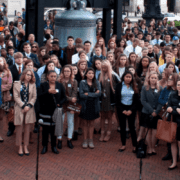

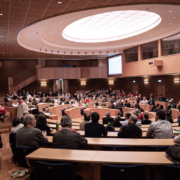
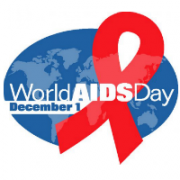
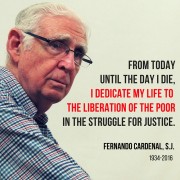
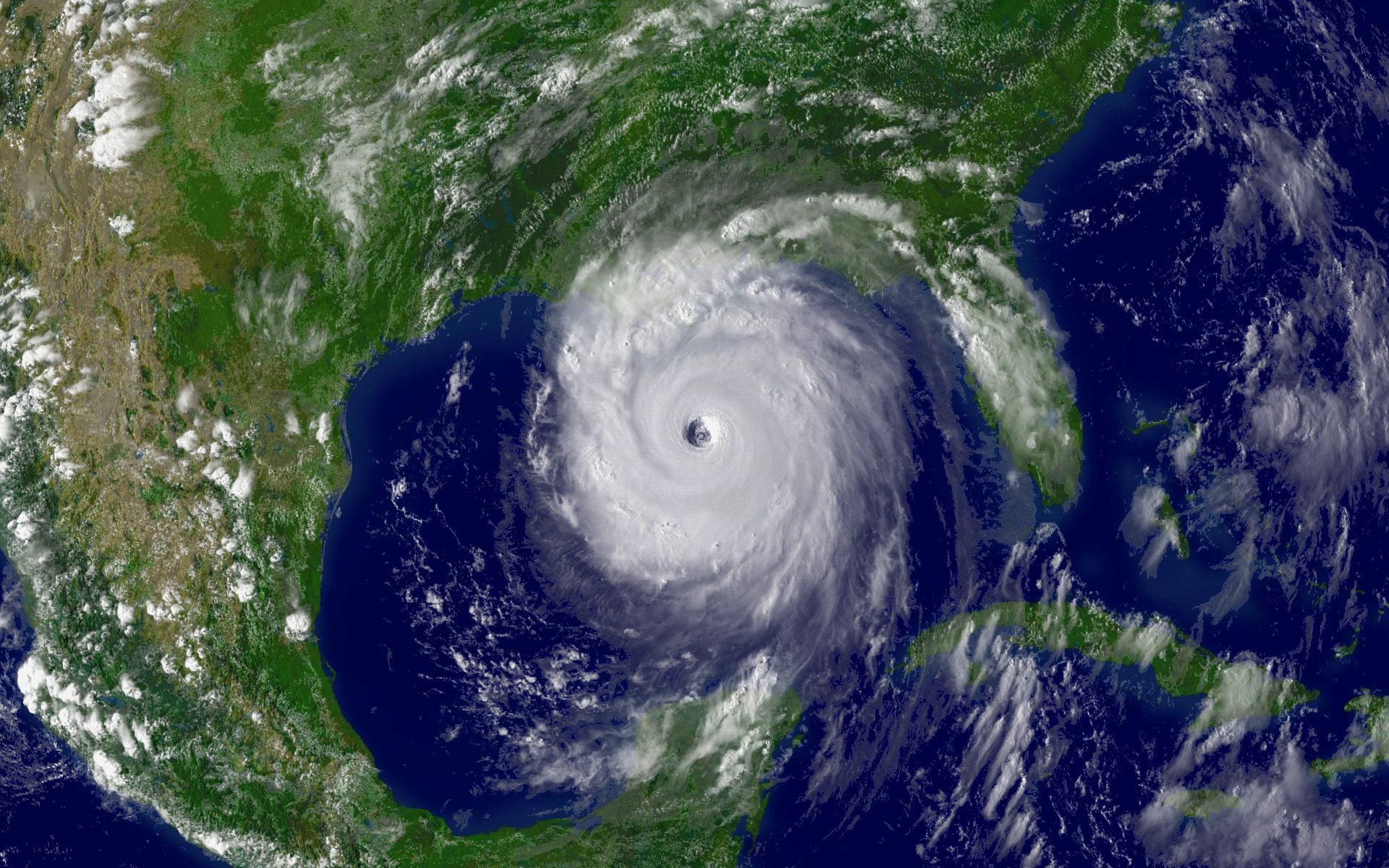



Leave a Reply
Want to join the discussion?Feel free to contribute!